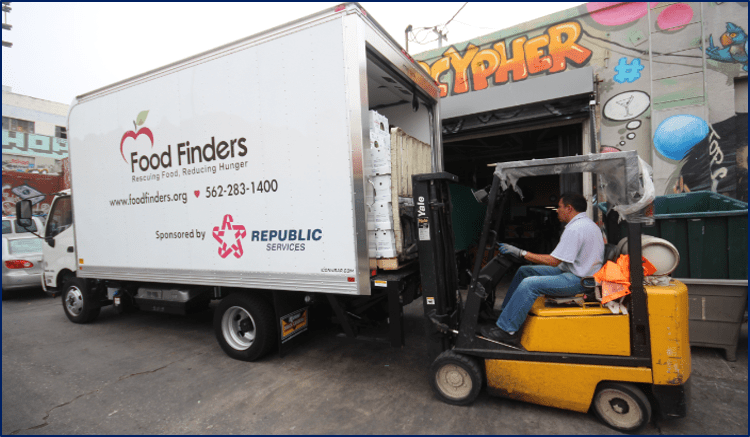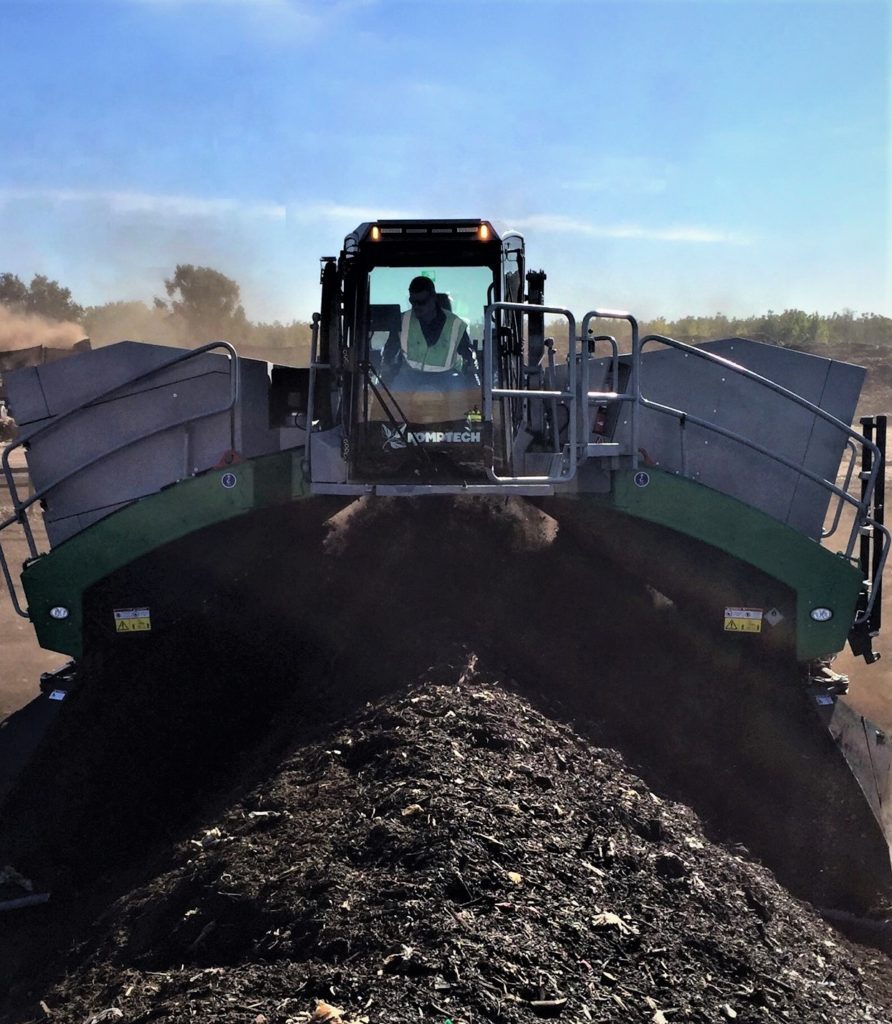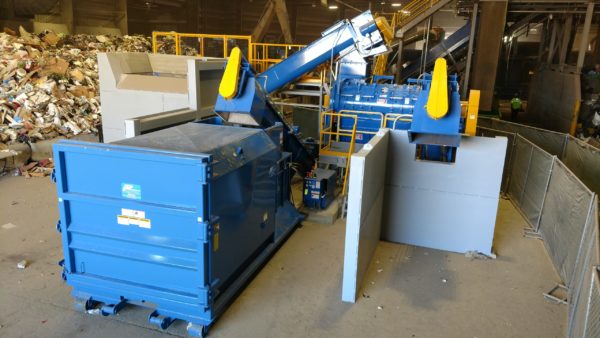2020 Organics Recycler of the Year: Republic Services
Republic Services is recognized for diverting organic waste from landfills.
There are many challenges that come with diverting organics from landfills—necessary infrastructure can be both costly and timely, contamination can present further obstacles and organics continues to be one of the fastest growing waste streams.
In fact, according to the U.S. Environmental Protection Agency, food and yard waste make up 30 percent of municipal solid waste sent to landfills. That’s a high percentage; however, conversations around food waste reduction and recovery are on the rise, legislation is continuing to drive organic waste out of landfills and companies such as Republic Services are ramping up their organics diversion solutions and food recovery programs.
Republic Services, the recipient of the National Waste & Recycling Association’s 2020 Organics Recycler of the Year award, has been providing organics solutions to its customers for more than 30 years, helping to recover safe and edible food for people and animals to consume and to divert organics to its composting facilities where the material is turned into a nutrient-rich soil amendment.
Currently, Republic has 11 composting facilities in five states, an organics preprocessing operation in Anaheim, Calif., and a food recovery program in Los Angeles that helps feed families in nearby communities.
“Working with our partners, including World Harvest Food Bank and Food Finders, we collect edible and safe surplus food to be redistributed to families in need,” says Chris Seney, director of organics at Republic Services. “We also work with World Harvest Food Bank and the Los Angeles Zoo to provide 10 tons of recovered food to the zoo each month for animal consumption.”

For the organics that can’t be consumed by humans or animals, Republic sends the material to its composting facilities or regional anaerobic digestion facilities. In 2019, Republic processed 1.7 billion pounds of yard and food waste and created more than 275,000 tons of compost, which was marketed and sold to landscapers, golf courses, farmers, residential customers and national brands at local home improvement stores.
These efforts are helping the company achieve its organics diversion goals as well as remain in compliance with legislation such as AB 1826 and SB 1383, which aim to help the state of California reduce greenhouse gas emissions and divert 75 percent of organics from landfills by 2025.
“At Republic, we provide three main organics diversion solutions: food recovery, organics preprocessing and composting,” says Seney. “More than half of our composting facilities are technologically advanced facilities, which allow organics to be processed faster and reduce odors, emissions and a facility’s footprint.”
Republic’s composting facilities feature a couple different types of advanced technologies. Some of the facilities utilize the aerated static pile (ASP) compost method, which has become the standard in California, according to Seney. With this process, the facilities use either positive or negative aeration to maintain aerobic conditions in a static pile of organic material during the composting process. Positive aeration uses fans to force air into the pile, while negative aeration uses fans to pull air through the pile.
Republic’s ASP systems rely on microbes living in a biofilter (i.e., woodchips or compost) to reduce odors and other emissions by more than 90 percent.
Another technology that Republic uses at some of its composting facilities is Gore technology, which is solar powered and uses a photo voltaic power system with battery backup. This technology employs an aeration system that introduces air into compost piles in conjunction with a cover technology that requires little energy consumption and reduces odors, dust and emissions. Fans are also used during this process to aerate the compost piles and maintain aerobic conditions in the piles.
These technologies have proven to be both efficient and effective, as has Republic’s organics preprocessing facility, which helps separate contamination from food waste before it is sent to a composting facility.

“Just as with recycling, contamination is one of the biggest challenges at our composting facilities,” explains Seney. “Our preprocessing facility allows us to remove about 99 percent of contaminants from the waste stream so that the organics can be properly processed and recycled at one of our composting facilities.”
Republic’s preprocessing facility opened in 2018, is permitted for up to 250 tons of organics per day and is outfitted with a Mega Thor Turbo Separator from Scott Equipment, which is capable of processing up to 20 tons of organics per hour by utilizing a horizontal hammer mill that relies on a rotating set of hammerlike paddles that press organics through screens.
That facility is currently Republic’s only preprocessing facility, but the company plans to develop more preprocessing and composting infrastructure in the future.
“Developing organics infrastructure is expensive and permitting can take a long time, but expanding infrastructure is one of our main focuses, as it will enable Republic to increase the capture of organic materials and support enhanced sustainability,” states Seney.

